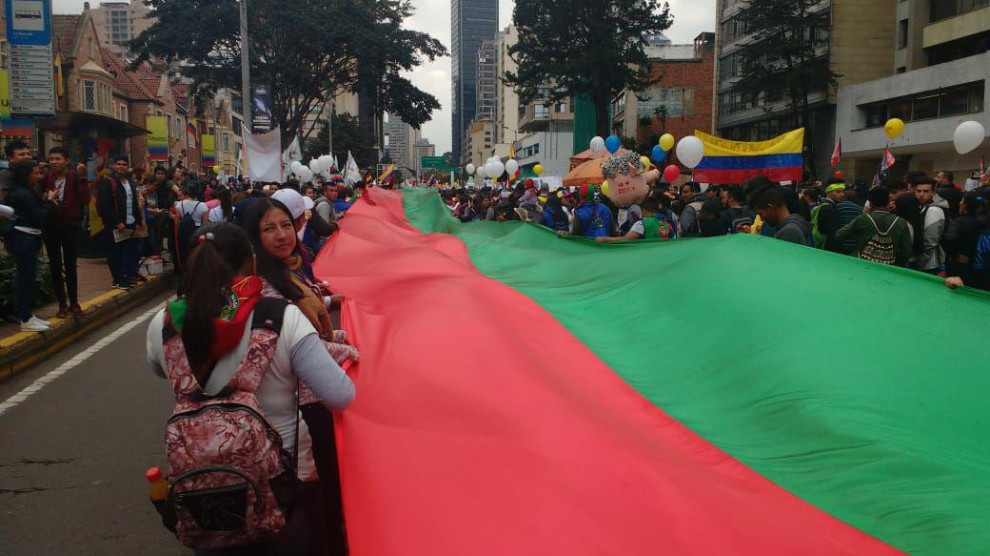Tens of thousands joined national strike in Colombia
Tens of thousands took to the streets in Colombia to join the national strike, amidst heavy security measures and clashes in the capital Bogota.
Tens of thousands took to the streets in Colombia to join the national strike, amidst heavy security measures and clashes in the capital Bogota.

Massive marches have taken place in several cities of Colombia. Tens of thousands reponded to the call for a national strike and took to the streets on Thursday despite the heavy security measures ordered by the President.
Colombia's main organizations of workers, farmers, and students reject President Ivan Duque’s neoliberal policy package, which seeks to eliminate the state-based pension fund, increase the retirement age and hire young people with salaries below the minimum wage.
Progressive parties and organizations also require the right-wing government to demonstrate a greater commitment to the implementation of the Peace Agreement and more protection to the lives of social leaders, who have been victims of selective killings executed by "unidentified" paramilitary groups.
Since the signing of the Peace Agreement in 2016, at least 777 social leaders and 137 former guerrilla fighters have been killed in Colombia, according to the Institute for Development and Peace (Indepaz).
Anti-riot police attacked the demonstrators and especially the students section of the multitudinary march in the capital Bogota.
Mayor of Cali declared curfew
The mayor of Cali, Maurice Armitage, declared a curfew starting at 7 pm (local time) and for an indefinite period, in the middle of the march in that city for the national strike.
"After seeing the peaceful demonstration of some 20 thousand people, I have no choice but to decree the curfew from 7 pm," Armitage told local press.
The mayor said the measure responds to "a series of vandals and criminals" who "are robbing and looting business."
The mayor said: "Who violates the curfew would be arrested."